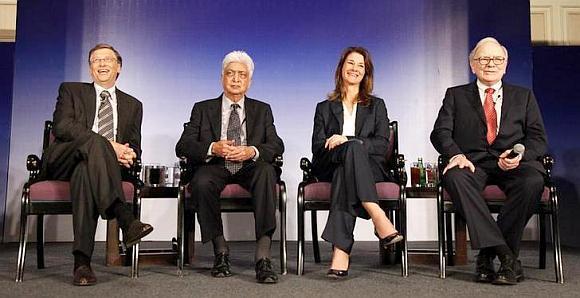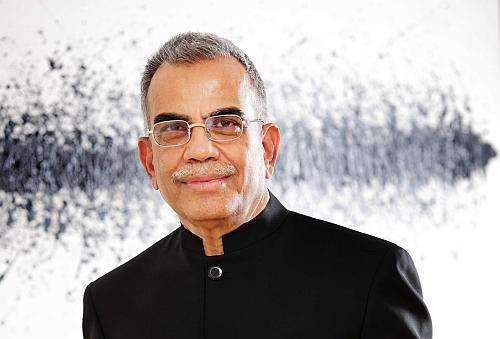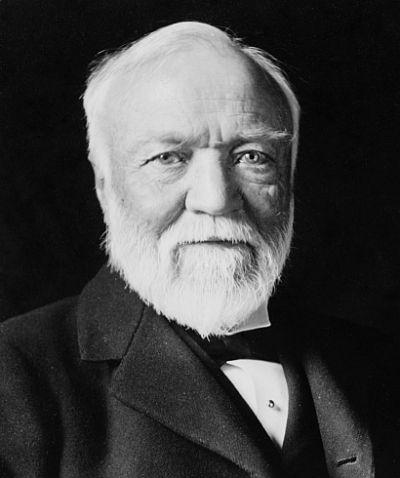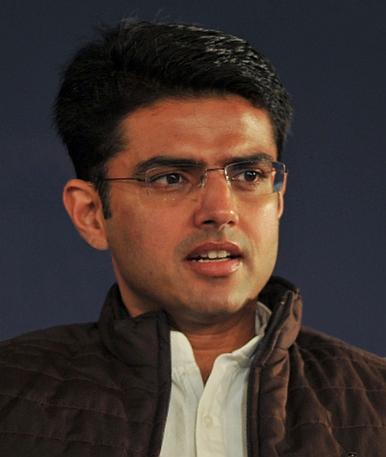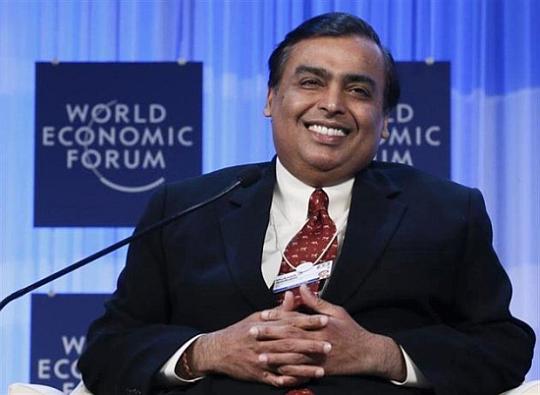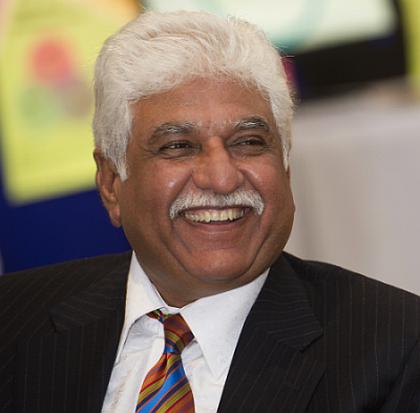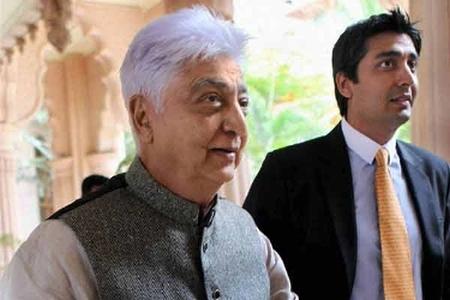 | « Back to article | Print this article |
Why don't India's rich do more for charity?
With Rs 22,000 crore (Rs 220 billion), Azim Premji could have bought Antilla, Mukesh Ambani's billion-dollar 27-floor home in south Mumbai, four times over.
Instead, Premji, who is worth $11.2 billion (Rs 61,600 crore), according to Forbes, signed The Giving Pledge, a moral commitment (not a legal contract) initiated by Bill Gates and Warren Buffett to get the world's billionaires to commit at least half of their wealth to charity, on February 19.
He has, in two tranches, one in 2010 and the other last month, transferred 19.93 per cent of Wipro's shares to the Azim Premji Foundation. The dividend earned by the shares funds the foundation's activities.
A few days later, P N C Menon, the Dubai-based promoter of Sobha Developers, said that he will donate half of his wealth, currently estimated at almost $600 million (Rs 3,300 crore), to charity.
"I am lucky to have made my money," Menon told Arabian Business. "After a certain point in time, money cannot make a difference to your life."
His is a truly rags to riches story: he left Kerala for Oman with just Rs 50 in his pocket after financial problems forced him to drop out of college.
Click NEXT to read more...
Why don't India's rich do more for charity?
In 2006, Menon, who prays for two-and-a-half hours every day, offered 75 kg of gold to the Guruvayur temple as part of a ceremony called tulabaram where one can donate gold equal to one's weight.
Premji and Menon are members of a small group of Indian billionaires who have decided that they have made enough money to last them several generations and should now give some of it back to society.
Otherwise, the track record of Indians in philanthropy and building public institutions is quite poor.
Apart from a handful of business families like Tata (Indian Institute of Science, Tata Institute of Fundamental Research, Tata Institute of Social Sciences et cetera), Shri Ram (Shri Ram College of Commerce, Lady Shri Ram College, Shri Ram Bharatiya Kala Kendra et cetera), Wadia (baugs for Parsis, institutes of higher education and hospitals) and Birla (schools and Birla Institute of Technology and Science with campuses in Pilani, Goa, Hyderabad and Dubai), most others were content to make money for themselves and their families.
Business Standard had commented in a recent editorial that most "business leaders see themselves as stewards of family wealth, which they have no right to give away from the family".
Click NEXT to read more...
Why don't India's rich do more for charity?
There is another factor at work. Before liberalisation, businessmen were subject to punitive taxation. Many of them had to often sell shares just to pay their taxes.
Also, many billionaires are of recent vintage - they owe their wealth to the rise in the stock market during recent years.
Some other businessmen privately argue that Indians are in growth mode, many of them have even pledged their shares to raise money; so, charity, though desirable, has to take the back seat.
India's current crop of businessmen, frequently accused of crony capitalism, is often compared with its American counterparts of the 19th century, the so-called robber barons, who bribed, colluded and intimidated their way to untold riches. In the process, they laid the foundations of a great industrial society.
But there was a difference, as is exemplified by Andrew Carnegie. He was the biggest steel maker of his time, but sold his factories to J P Morgan in 1901 for $480 million (now $7 billion) and decided to give it all away so that he could die poor.
By the time he died in 1919 with a balance of $30 million, he had built concert halls, public libraries, universities, peace endowments, and museums.
Click NEXT to read more...
Why don't India's rich do more for charity?
That spirit has often been found missing in India, though the trading community has had the tradition of dasahi - keeping a tenth of one's annual income aside for religious and social charity.
When Gates, during his first visit to India, told businessmen in the ballroom of a New Delhi hotel that he intended to give away his wealth to charity, a short laugh went up in the audience, as if telling him, "Surely, you don't mean it".
That's perhaps why the New Companies Bill wants to make it mandatory for companies to spend 2 per cent of their profit on corporate social responsibility - a penalty on all shareholders for the stinginess of the promoters.
Corporate Affairs Minister Sachin Pilot denies there is a link between the two, but admits that "we can be a more giving society".
But there is change in the air. In its India Philanthropy Report 2012, Bain & Company said, based on a survey of 400 people, high net worth individuals contributed 3.1 per cent of their total income to charity in 2011, up from 2.3 per cent in 2010.
Click NEXT to read more...
Why don't India's rich do more for charity?
It is still way below the US where high net worth individuals gave away 9.1 per cent of their income during the year.
Most people will tell you that India and the US cannot be compared because of one simple reason: tax.
In 2010, Mukesh Ambani, the richest Indian, was asked by NDTV's Prannoy Roy where Indian billionaires stood when it came to philanthropy. Ambani had replied that "circumstances in the US and aspirations in India are different."
Pointing to the then finance minister, Pranab Mukherjee, he had also said: "I hope that the finance minister will not get ideas about inheritance tax. That is the main reason that most people in the US give."
In the US, a 40 per cent inheritance tax, or estate tax, is imposed on a person who inherits money or property from a deceased. However, if the asset is left to a federally-recognised charity or foundation, estate tax isn't collected.
There are other indications too of change. The revenue foregone by the government on account of donations to charitable trusts and institutions has climbed steadily from Rs 288 crore (Rs 2.88 billion) in 2010-11 to Rs 297 crore (Rs 2.97 billion) in 2011-12 and Rs 359 crore (Rs 3.59 billion) in 2012-13 (projected).
Click NEXT to read more...
Why don't India's rich do more for charity?
Rakesh Mittal of Bharti Airtel says the corpus of the family-funded Bharti Foundation has exceeded the targeted corpus of Rs 200 crore (Rs 2 billion) by Rs 25 crore (Rs 250 million) with generous contribution from others like the Singh family of DLF and Kalpana Morparia of JP Morgan.
The foundation provides education to 38,000 students in close to 250 villages. Mittal plans to raise the number to 100,000 in the next five to seven years, and for that wants to raise the corpus of the foundation to Rs 1,000 crore (Rs 10 billion). Of course, the lion's share will come from the Mittals.
Rajashree Birla says her son, Kumar Mangalam, has a "zealous, evangelical approach and has made philanthropy a part of our DNA".
But there is still a long distance to cover. In the 2012 Forbes list of billionaires, 55 of the 1,426 entries were from India. That means India is home to 3.85 per cent of the world's billionaires.
However, in The Giving Pledge list of 105, there's only one Indian - Premji. The country's representation on this super list of givers falls below 1 per cent.
Click NEXT to read more...
Why don't India's rich do more for charity?
But it could improve. Rohini Nilekani, Infosys co-founder Nandan Nilekani's wife, admits the couple has considered signing up.
Some others feel The Giving Pledge is more show than substance, an exclusive club that is guarded zealously by its members.
The list was first restricted to US billionaires but was later opened to other countries. However, a proposal to lower the entry barrier to $800 million was stoutly resisted.
Indian businessmen are reluctant to talk about the money they have committed to charity. The Ambanis never disclose details of their personal wealth.
Earlier this week, when Nita Ambani was visiting Surat to gauge the progress of Reliance Foundation's rural transformation project, Bharat-India Jodo, Business Standard asked her how much of their wealth have she and her husband committed to charity, but she refused to comment.
When asked if the Ambanis intended to sign The Giving Pledge, she again refused to comment.
Rohini Nilekani says she had always been told that giving was a very private affair and that revealing her contribution to charity was against her deeper instincts but has now "reluctantly come to the conclusion that I have to make my giving public".
Click NEXT to read more...
Why don't India's rich do more for charity?
She says she has so far donated Rs 200 crore of her personal wealth (she owns 1.41 per cent of Infosys) and intends to give more.
Malvinder Singh, one half of the Singh siblings of Religare and Fortis, says the family has decided not to talk about its personal charity, but discloses that "healthcare is one of the series of things we are doing".
Habil Khorakiwala of Wockhardt, too, is not known to advertise his philanthropic activities, though his eldest son, Huzaifa, vouches for his father's "strong social conscience".
Silent charity can have its disadvantages. Manoj Bhargava (he is a citizen of the United States) of 5-Hour Energy who is worth $1.5 billion, has signed The Giving Pledge and works to alleviate "human suffering in India".
He said in an interview that since he was little known, people in India thought he was "some sort of a criminal. People thought, 'We've never heard of this guy, so he must be some kind of money launderer'".
After being discovered by Forbes as a billionaire and signing The Giving Pledge, Bhargava hopes to address the identity crisis.
Click NEXT to read more...
Why don't India's rich do more for charity?
One factor that has kept rich Indians from charity is the opaque operations of the NGOs they give money to.
Bain & Company, in its 2013 philanthropy report, said that only 38 per cent donors receive at least a quarterly communication from the NGOs they fund; the rest do not receive regular communication.
More than a quarter of the high net worth individuals surveyed in the report said they would raise their donations by 20 per cent if the communication from the NGOs improved.
"The world over, billionaires - and that includes Gates - prefer to set up their own charitable foundations and put their money into it instead of donating it to even the most credible NGO," says Puja Marwaha, CEO of Child Rights and You, or CRY.
"Big donors want to closely control the money they have donated." Thus, Azim Premji, his wife Yasmeen, and elder son Rishad are all on the board of the Azim Premji Foundation.
The foundation is run by chief executives Dileep Ranjekar and Anurag Behar but Premji is reported to monitor the working closely, reviewing its affairs at least once a month.
Click NEXT to read more...
Why don't India's rich do more for charity?
It's been observed that most of India's leading businessmen prefer to invest in education, health, nutrition and poverty alleviation.
"These are the most visible areas in which the results are tangible," says Rakesh Jinsi, secretary general of SOS Children's Villages of India.
According to him, SOS, which works with each child for about 25 years, from giving him a home and a mother to seeing him through life till he gets a job or gets married, has had "very limited success in accessing any reasonable funds from high net worth individuals".
The primary model of SOS is such that the donor has to wait for 10 to 15 years to see the result.
"We are not about the number of children we help, but about the depth and extent to which we help them. A potential donor wants to show big numbers. He feels he won't look great if he says he has helped only 6,000 or so children through SOS."
Unwittingly, businessmen can't stop calculating return on investments.
